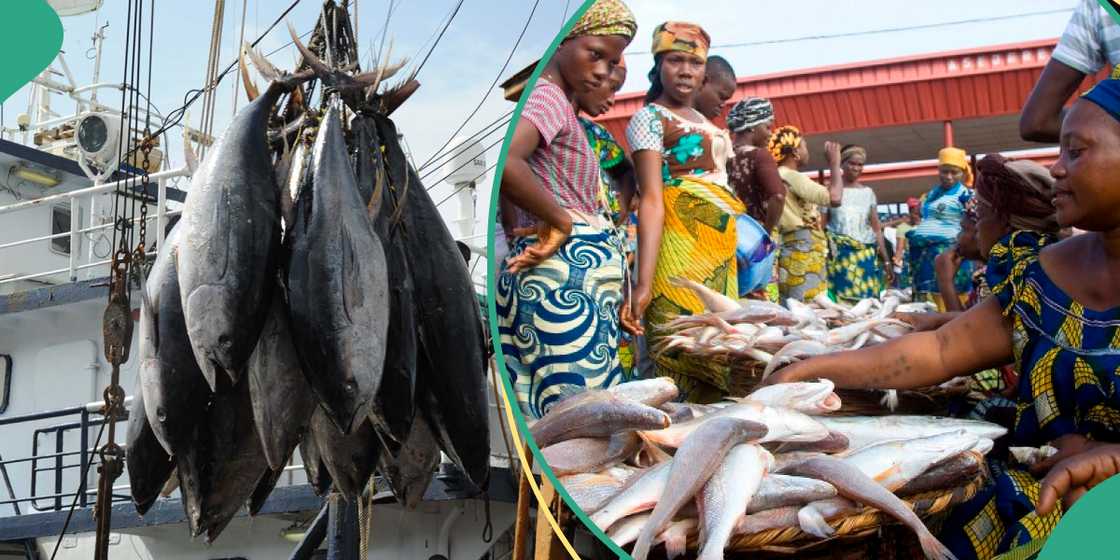Nigeria Imports $1.2 Billion Worth of Fish Yearly to Cover 45% of Demand
- An international organisation has disclosed that nearly half the fish consumed in Nigerian homes comes from abroad
- It was also revealed that to meet local demand, the country spends about $1.2 million yearly to import the food commodity
- WorldFish’s country representative stated that as Nigeria's population grows, the country would spend even more to meet the demand for fish
Don't miss out! Join Legit.ng's Sports News channel on WhatsApp now!
Legit.ng journalist Victor Enengedi has over a decade's experience covering Energy, MSMEs, Technology and the stock market.
WorldFish has revealed that Nigeria spends approximately $1.2 billion each year on fish imports.
The organisation also highlighted that over 45% of fish consumed in Nigeria is imported.

Source: UGC
According to the National Bureau of Statistics (NBS) Consumer Price Index (CPI) report, the food inflation rate in September 2024 was 37.77%, propelled by increases in the prices of food, including fish.
Nigeria imports 45% of its fish
During a validation workshop, Dr. Sunil Siriwardena, WorldFish’s Country Representative, emphasised the importance of establishing a national policy on fisheries and aquaculture to address the rising demand.
According to The Nation, Siriwardena noted that such a policy could help the federal government boost domestic fish production and reduce the annual expense on imports.
He stated that fish is a crucial food commodity with significant benefits for reducing poverty and enhancing food and nutrition security in Nigeria.
Despite the value of fish farming in Nigeria, Siriwardena laments that Nigeria is unable to meet the demand for fish.
Siriwardena said:
“Nigeria, per capita fish consumption is rather low. Only 11.2 kg is consumed. Because Nigeria can’t meet the demand for fish, 45 per cent of Nigeria’s fish supply comes from imports.
“This costs the government around $1.2 billion annually. If national fish supply could be increased, this money can be saved for the development of smallholder farmers.”

Read also
More electric vehicle to compete with Innoson as Taiwan launches special motorcycle in Nigeria
He noted that studies indicate Nigeria’s population is projected to grow from the current 224 million to 263 million by 2030, creating a need for an additional 752,000 tons of fish to sustain the current per capita consumption levels.
He added that Nigeria would require 3.14 million more tons of fish to match global per capita consumption by 2030.
If 70% of this, or 2.2 million tons, is to come from aquaculture, the country would need 3.1 million tons of fish feed and a substantial supply of fish seeds.
Fish farmer makes it big
Meanwhile, Legit.ng earlier reported that a Nigerian man who initially started a fish pond as a hobby has grown it into a thriving business after realising its profitability.
He explained that his journey began with just 100 fingerlings, but he now owns a pond capable of accommodating 7,000 fingerlings.
A video revealed that the man generates millions in revenue from his fish pond, located right behind his house.
Proofreading by James, Ojo Adakole, journalist and copy editor at Legit.ng.
Source: Legit.ng




